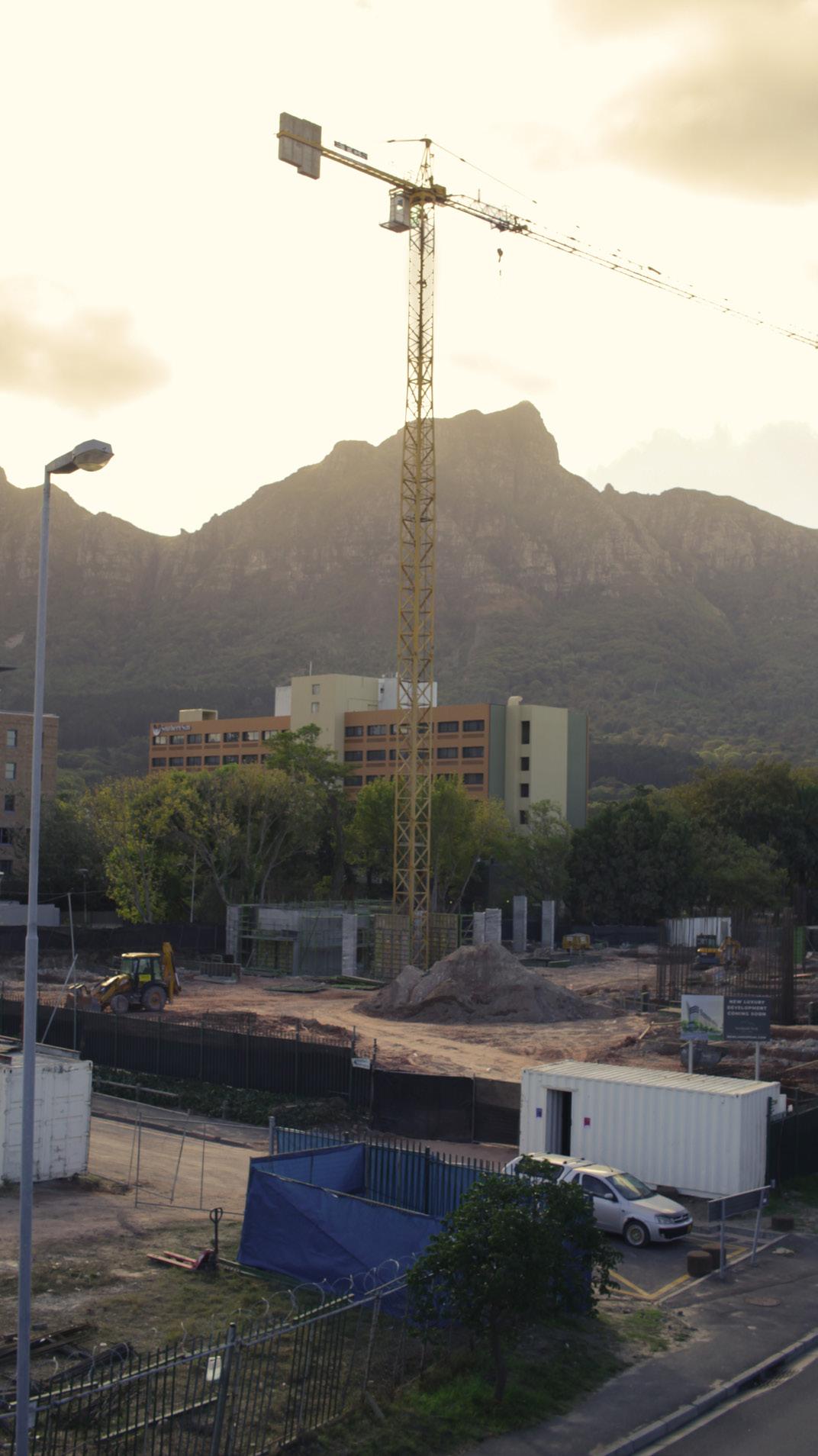
6 minute read
A Judicious Judiciary? An Evaluation of Three Lockdown Regulation Judgments
By Jaime Uranovsky
More than a year after the unfortunate consumption of either a bat, a pangolin, or a number of other potential animals, many ‘fellow South Africans’ (yes, that was on purpose) are now painfully acquainted with the Disaster Management Act (‘DMA’) and its regulations which have governed our lives since March last year. While COVID-19 certainly constitutes a disaster, many felt that the regulations imposed under heavy lockdown, and even after, were too limiting on the rights protected in the Constitution. Indeed, various parties approached the country’s courts in efforts to get the lockdown regulations declared unconstitutional and invalid. So, how did the Judiciary do? It is time to weigh in on how the courts dealt with some of the regulation-related matters that they heard over the last year.
Advertisement
The Judiciary walks a fine line between imposing a check on other branches of government and encroaching on the Legislature or Executive’s lawmaking/overseeing roles. This balance is especially important to get right in South Africa, where – predemocracy– courts often gave decisions in line with the Executive’s policies, with judges invariably penning a line or two about how the possibility of a more just outcome lay within the Legislature’s court instead of, ironically, within the Judiciary’s own. And, to a degree, that was and is true. Now that the people of South Africa have the Constitution as a mechanism (on paper anyway) to protect rights for all, one might ask whether judicial activism is still necessary or even possible today. This is where lockdown matters become relevant. In this unprecedented time, when the Government is restricting our actions more than they usually do, courts once again need to find the right middle ground. This piece is by no means a comprehensive summary of all lockdown related matters brought before the courts. Only three cases are considered here in brief.
De Beer and Others v Minister of Cooperative Governance and Traditional Affairs.
In June last year, the Pretoria High Court declared the Level 4 lockdown regulations (save for a few) in terms of section 27(2) of the DMA invalid. The declaration of invalidity was suspended for two weeks, to allow the Minister to make the necessary amendments. While some saw this as a victory indicating that the Government had breached the dictates of the Constitution, the judgment has been severely criticised. Furthermore, commentators have argued that the judgment would not survive on appeal.
The matter called for the court to conduct a rationality review on the lockdown regulations of the time. Unfortunately, Judge Norman Dennis incorrectly applied the rationality test, which makes the outcome
of the judgment difficult to take seriously. Instead of testing lockdown regulations by asking whether each regulation was rationally connected to the purpose for which the rule was created, it tested different regulations against each other. For example, it stated that it was irrational for public transport such as buses and taxis to be operating while beauty salons were banned from conducting business. This
is not how rationality review is conducted. At other times, the judgment arbitrarily referred to some regulations as rational without testing them at all. At yet other times, the court conflated rationality with reasonableness.
Since this judgment dealt with the challenging of regulations (as administrative action), the matter did not need to be confirmed by the Constitutional Court in the way that the invalidation of a piece of primary legislation would be. Commentators such as Jason Manyenyeni argue that each regulation should have been individually tested against the Constitution. Unfortunately, some regulations were not even mentioned in the judgment. Indeed, how then, could almost all of them be declared invalid?
This judgment showcases a missed opportunity for the Judiciary to have considered with more precision and thoroughness, whether each lockdown regulation could pass constitutional muster.

British American Tobacco South Africa (Pty) Ltd and Others v Minister of Co-Operative Governance and Traditional Affairs and Others.
In December 2020, the Western Cape High Court handed down a judgment ruling that the five-month prohibition on tobacco sales earlier in the year was unnecessary and inconsistent with the Constitution. The application was brought by one of the largest tobacco trading companies in the country, British American Tobacco South Africa (‘BATSA’) as well as by various other companies, groups, and individuals. While the matter was argued in August, the court reserved judgment until December, by which time the BATSA contended that the decision to prohibit tobacco did not pass the necessity test and that it violated the constitutional rights to dignity, privacy, physical integrity, and being able to choose one’s trade. The court agreed that the limitation of these rights was not justified in
accordance with section 36. Interestingly, the Minister will be appealing the matter to the Supreme Court of Appeal (‘SCA’) on the grounds that the Western Cape High Court was bound by North Gauteng High Court’s (‘NGHC’) decision last year, which held that the ban was rational. In the NGHC matter, the Fair Trade Independent Tobacco Association unsuccessfully argued that the prohibition on tobacco was unconstitutional.
How this controversial dispute ends remains to be seen but one thing is for sure: all smokers will have their eyes firmly on the SCA when it makes its decision.

Esau and Others v Minister of Co-Operative Governance and Traditional Affairs and Others.
More recently, in January this year, the SCA dismissed a matter on appeal from the Western Cape High Court. In the court a quo, a group of individuals brought an application last year to have the lockdown Level 4 regulations declared unconstitutional. They alleged that the regulations breached their rights under the Constitution, that the formation of the National Coronavirus Command Council (‘NCCC’) was procedurally unlawful, and that the public participation element of the Level 4 regulations was insufficient and therefore led to procedural unfairness. The high court judgement, handed down in June 2020, dismissed the application in its entirety.
The appellants were marginally more successful
at the SCA, where the court dismissed the appeal with the exception of two regulations which were declared invalid. These were the regulations allowing for only certain exercise during a three-hour window within a five-kilometre radius of one’s residence, as well as the regulation banning the selling of over-the-counter hot foods. These regulations were held to be irrational.
The SCA confirmed that the establishment of the NCCC was in fact procedurally fair and that the regulations themselves (save for the two mentioned above) were rational in that they served the purpose set out in the DMA – to create a comprehensive disaster management policy. Moreover, it was held that the process for public participation met the dictates of procedural fairness as the public was given the opportunity to comment. Indeed, some comments were even accepted after the deadline. Furthermore, it held that, while certain rights have been limited and breached by the regulations, this was justified in terms of the limitations clause contained in section 36 of the Constitution.
This judgment, in applying the relevant legal principles correctly, struck the right balance: it evaluated the actions of the Executive in trying to protect the public while invalidating the regulations that veered on ridiculous. These kinds of well-reasoned judgments are what one wants to see from this arm of the government.
As the Judiciary continues to hear matters in these extraordinary times, we must continue to pay close attention to courts’ judgments. Indeed, much of the Judiciary’s legitimacy stems from the court of public opinion. In an age of fake news, conspiracy theories and a culture of recalcitrance when it comes to accepting science and logic, the way in which our courts balance the freedoms of the people and the actions of the other organs of state constitutes a statement in itself: that reason and justification must continue to triumph.










